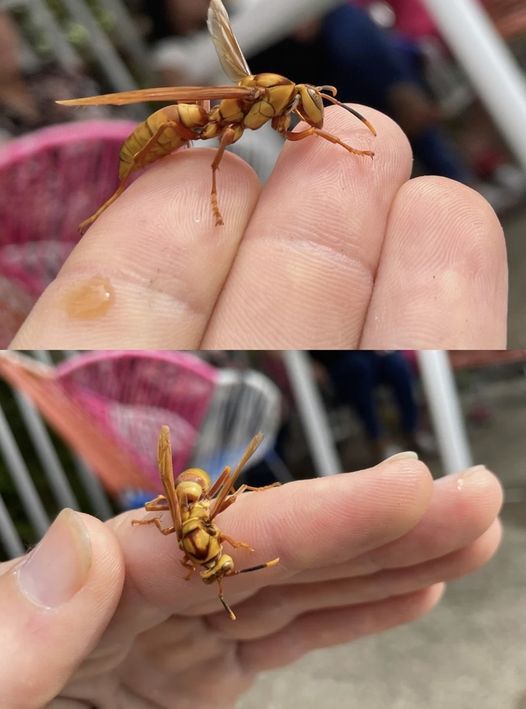Wasps—just the word is enough to make my skin crawl. I’ll admit it upfront: I’m absolutely terrified of anything that stings or bites, even the tiniest bugs. Honestly, even if a bug doesn’t bite, I still don’t want it anywhere near me. Something about the way they fly around with those tiny, twitching wings gives me the chills.

I know insects serve an important role in the ecosystem, and I try to respect that, but fear doesn’t always follow logic. Oddly enough, I actually like bees. I know they’re crucial pollinators and generally peaceful unless provoked. But wasps? They feel like nature’s aggressive little rebels. Maybe I’m overreacting because I’ve only been stung a few times, but one particular moment still haunts me—I stepped on a wasp while barefoot on my balcony grabbing laundry, and I limped like a soap opera character for a week. It hurt like nothing else, and since then, I’ve wanted to make sure I—and anyone like me—knows exactly what to do when it happens. Let’s clear something up first: wasps sting, they don’t bite—unless you’re a smaller insect they’re hunting. Stinging is their defense mechanism, and they don’t lose their stingers like bees do.
That means they can sting you multiple times, which honestly just feels like insult to injury. Wasps can be aggressive, especially if they think you’re a threat to their nest. They even attack bee colonies, causing chaos in the insect world. Visually, they’re also pretty different from bees. Wasps are sleeker, shinier, and don’t have that fuzzy look that bees do. They’re built more like flying needles—fast, thin, and intimidating. Bee stings usually result in the bee dying because their barbed stingers get stuck and tear out part of their abdomen. Wasps, on the other hand, have smooth stingers that let them strike again and again. The symptoms from a wasp sting vary. For most people, there’s immediate pain, some redness, and swelling. For others, especially those with allergies, it can become dangerous quickly. Symptoms like trouble breathing, swelling in the face or throat, rapid heartbeat, or even anaphylaxis require immediate medical attention. So, what should you actually do when a wasp stings you?
As much as I want to say “scream and run,” the better choice is to stay calm and slowly move away from the area to avoid further attacks. If by chance a stinger is left behind—which is rare but possible—don’t use tweezers. Instead, gently scrape it out using the edge of a credit card or your fingernail. Tweezers can accidentally squeeze more venom into your skin. Once the stinger is out, wash the sting site with soap and water to help prevent infection. After cleaning, apply a cold compress like a wrapped bag of frozen peas to reduce swelling and ease the pain—just never place ice directly on the skin. If needed, take over-the-counter painkillers to manage discomfort, and antihistamines can help with itching or swelling.
Always follow the instructions on the packaging. Most importantly, keep a close eye on your symptoms, especially if you’ve never been stung before. If you notice anything like shortness of breath, dizziness, or a rapid heartbeat, seek emergency medical attention right away. Prevention is also key, especially if you spend a lot of time outdoors. Avoid wearing strong perfumes and bright-colored clothing, both of which attract wasps. I tell my husband this all the time—his cologne is practically a wasp magnet. Keep your food and drinks covered when eating outside and always make sure trash cans are tightly sealed. And if you find a wasp nest near your home, don’t try to handle it yourself—call a professional to safely remove it. I’ve only had a few run-ins with wasps, but they were enough to teach me that fear doesn’t have to equal helplessness. I still prefer to admire them from afar, but knowing what to do if I get stung helps me feel a little more in control. As much as wasps seem like villains in our backyard stories, they actually help manage pest populations and contribute to pollination. So while I don’t want them anywhere near my bare feet ever again, I can at least respect the job they do—even if they scare the life out of me.





